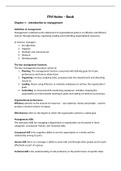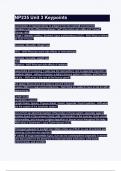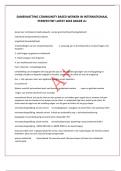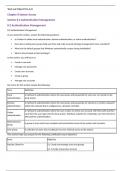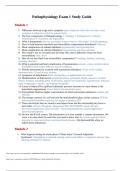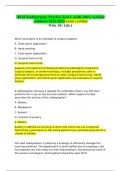Samenvatting
Complete Samenvatting Van Alle Benodigde Stof Voor Het Vak Introduction To Management
- Instelling
- Hogeschool Van Amsterdam (HvA)
Deze summary bevat alle benodigde theory voor het examen van het vak Introduction to Management afkomstig uit hetzelfde genaamde boek. Studeer deze summary en je slaagt 100% met een grandioos cijfer!
[Meer zien]
